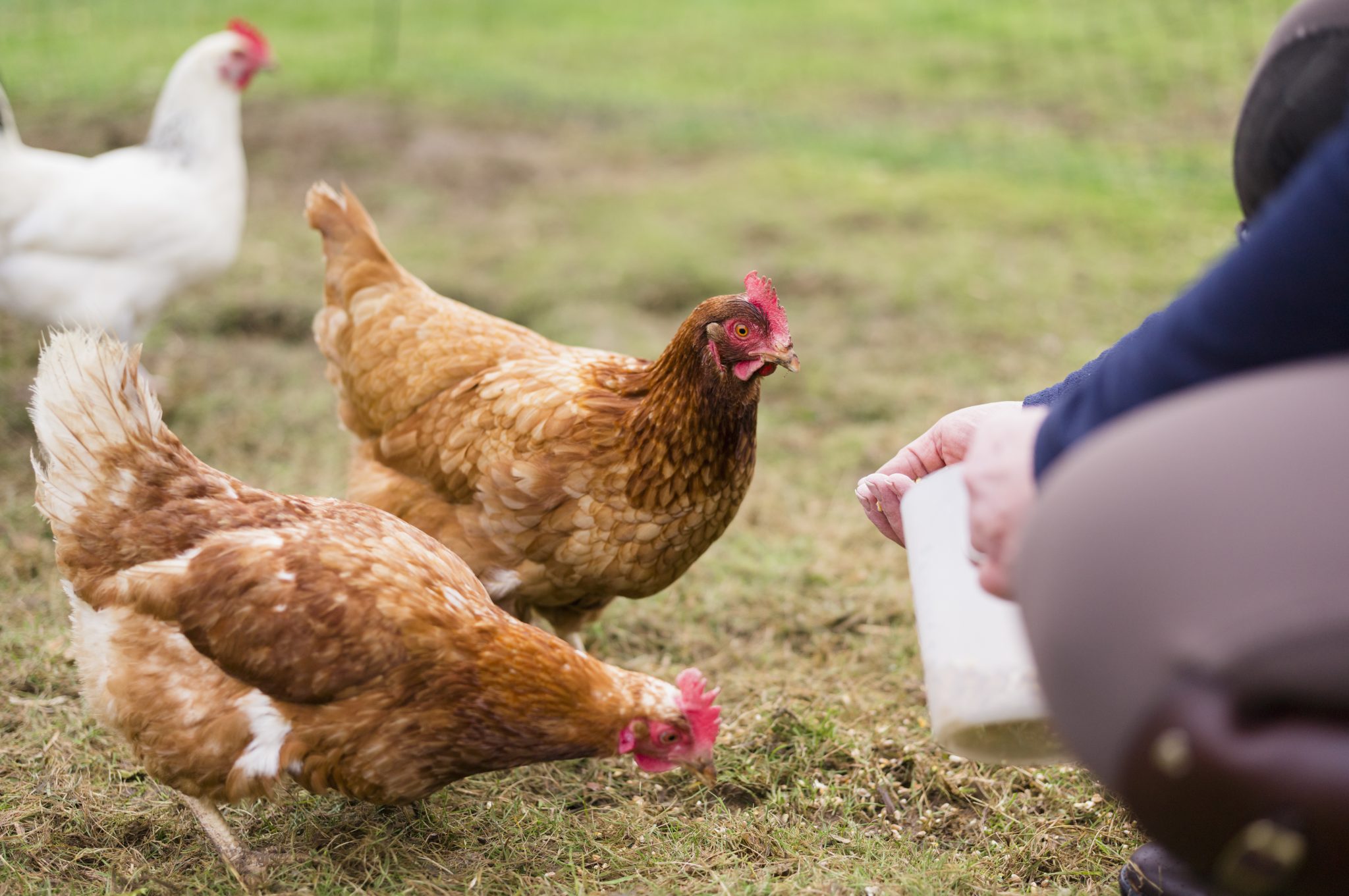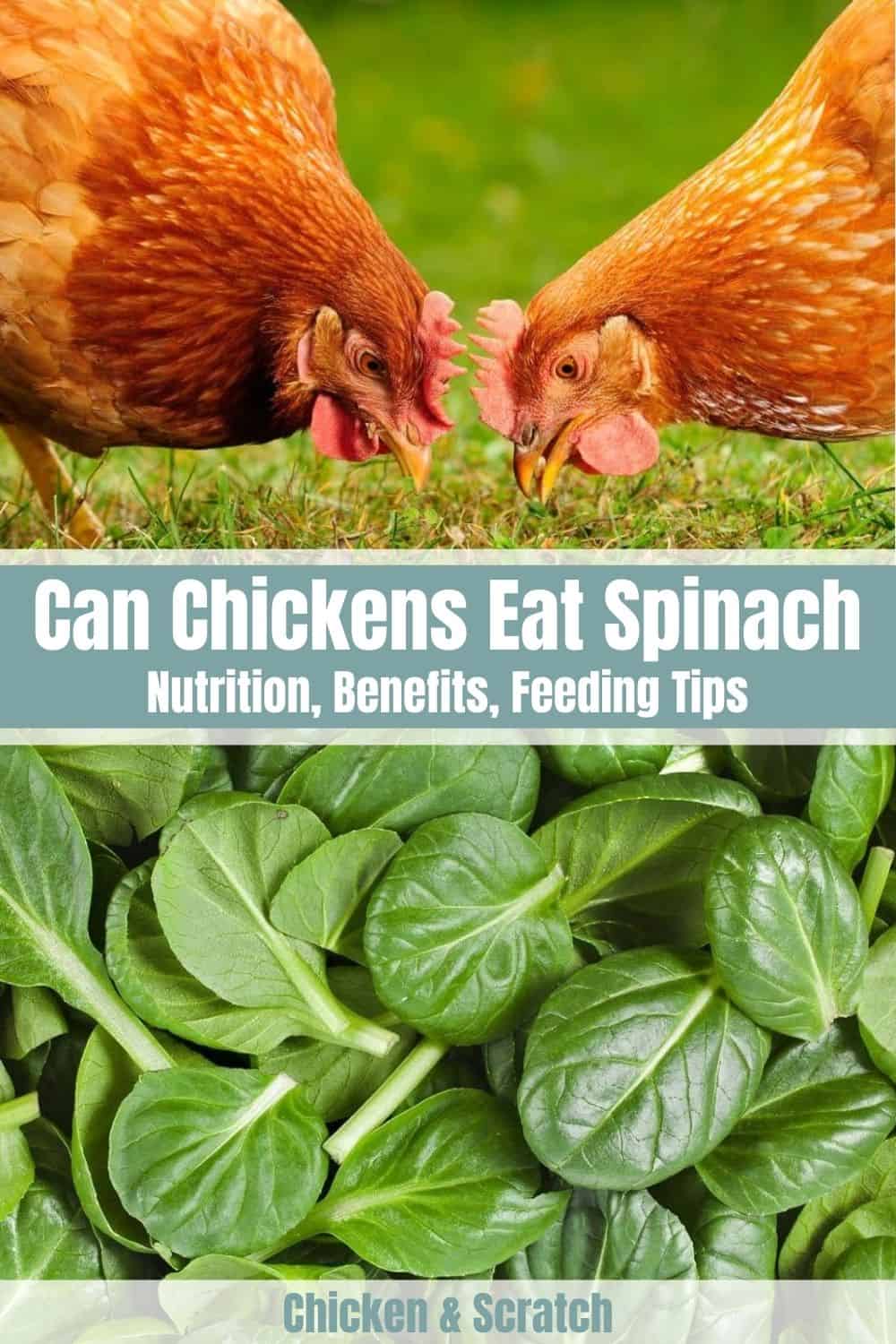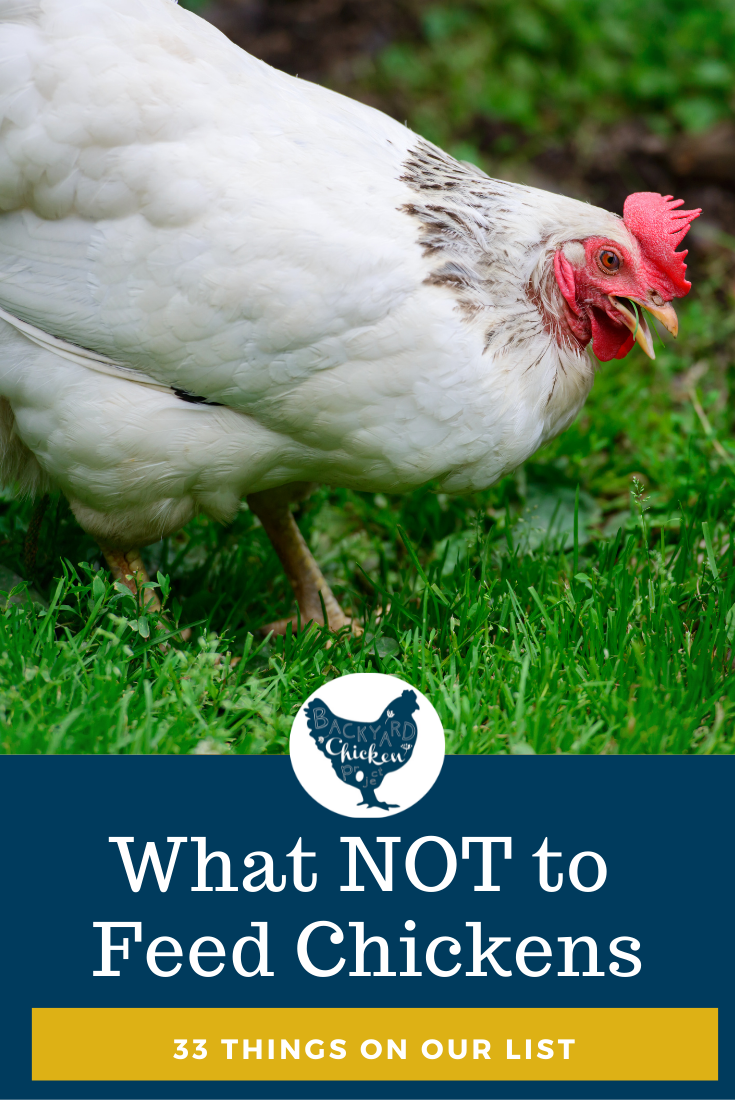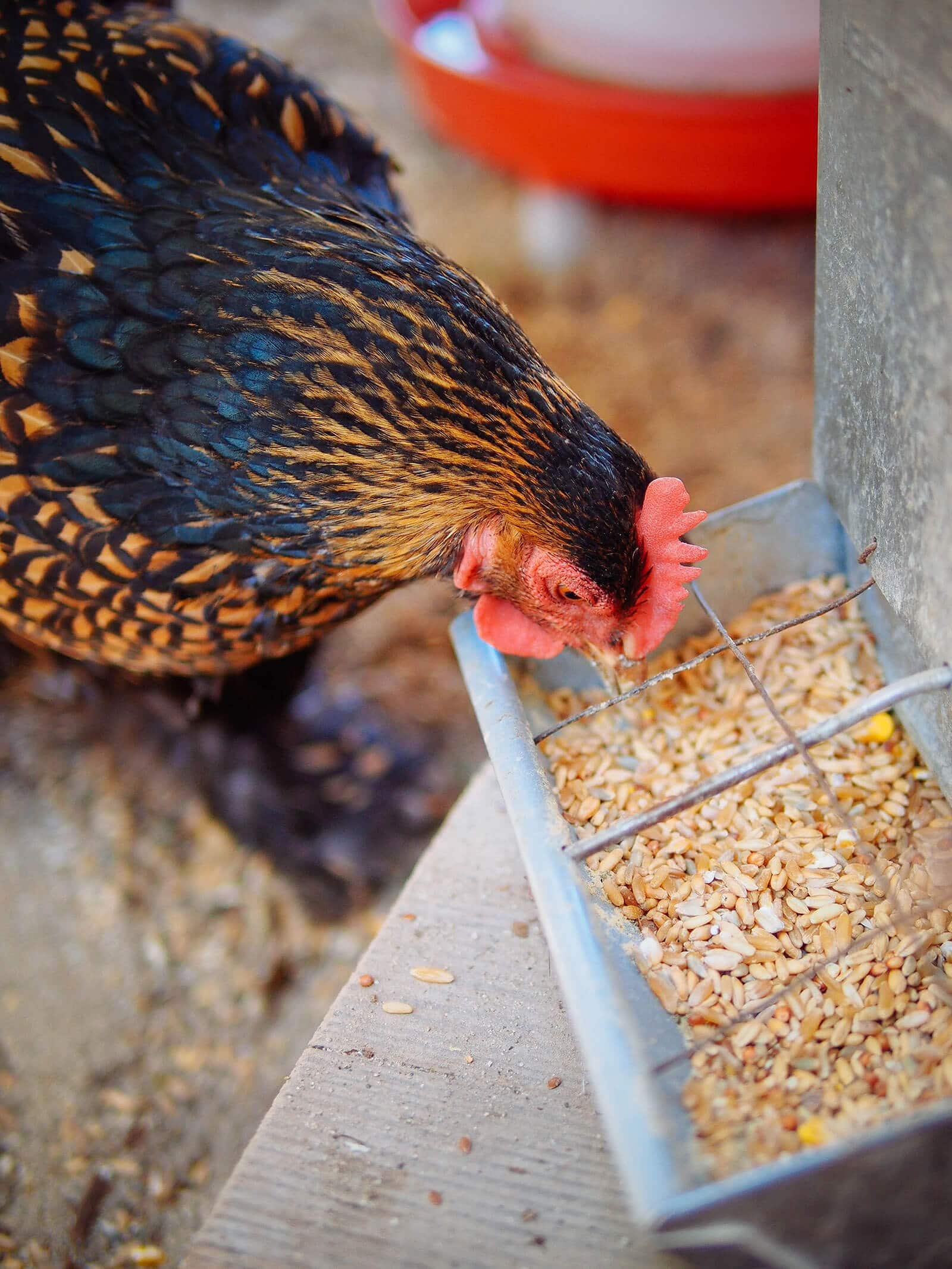Are you wondering what to feed a chicken? If so, you’ve come to the right place! This definitive guide to chicken husbandry provides detailed information on what to feed a chicken to keep them healthy and happy. From the basics of poultry nutrition to special considerations for different breeds and ages, this guide covers all the essential information you need to know about feeding your chickens.
Nutritional Requirements for Chickens

Protein
Chickens require a diet high in protein to maintain healthy muscle and feather growth. A good source of protein for chickens is feed that is specifically formulated for them, such as a complete feed or a high-protein scratch feed. Other sources of protein include kitchen scraps, such as cooked or raw meat, eggs, and dairy products.
Fats
Fats are a key component of a chicken’s diet, providing energy and essential fatty acids. Fats can be found in many different sources, such as oil-rich seeds, nuts, and grains. A good source of fat for chickens is poultry fat, which can be added to the feed in small amounts.
Carbohydrates
Carbohydrates are an important source of energy for chickens and can be found in grains, such as wheat, oats, and barley. Chickens also benefit from eating vegetables and fruits, which provide carbohydrates as well as vitamins and minerals.
Vitamins and Minerals
Vitamins and minerals are essential for chickens to stay healthy, and can be found in a variety of sources. A good source of vitamins and minerals is dark green leafy vegetables, such as kale and spinach. Other sources of vitamins and minerals include insects, worms, and fish.
In summary, what to feed chickens is an important part of successful chicken husbandry. A balanced diet of high-quality feed, proteins, fats, carbohydrates, vitamins, and minerals is essential for keeping chickens healthy and happy.
Best Foods to Feed Chickens

Grains
Chickens need a balanced diet that includes grains such as wheat, oats, barley, and corn. These grains provide carbohydrates, protein and essential fats that help keep chickens healthy. Feeding chickens a variety of grains is important for maintaining their overall health and vitality.
Legumes
Legumes such as split peas, lentils, and beans are a great source of protein and fiber for chickens. Legumes provide chickens with the essential amino acids they need to grow and stay healthy.
Vegetables
A variety of vegetables can be fed to chickens, such as lettuce, kale, carrots, and squash. Vegetables provide chickens with essential vitamins, minerals, and fiber that help keep them healthy.
Fruits
Fruits such as apples, bananas, and berries can be fed to chickens. Fruits provide chickens with carbohydrates, vitamins, minerals, and antioxidants.
Insects
Insects are a great source of protein for chickens. Insects such as crickets, mealworms, and grubs provide chickens with essential amino acids, fatty acids, and other nutrients. Feeding chickens a variety of insects is a great way to ensure that they get all of the essential nutrients they need.
When it comes to what do you feed chickens, grains, legumes, vegetables, fruits, and insects are all great options. It’s important to feed chickens a balanced diet that includes all of these food types in order to keep them healthy and happy.
What Else Can Chickens Eat Besides Feed

Kitchen Scraps
Kitchen scraps such as vegetable peels, fruits, and grains can provide chickens with a healthy, balanced diet. When feeding kitchen scraps, it’s important to avoid feeding the chickens anything that has gone bad or moldy, as this can make them sick. Additionally, some foods that can be fed to chickens, such as avocados, should be limited due to their high fat content.
Eggs
Eggs are a great source of protein for chickens, and can be an excellent supplement to their regular feed. They can be served boiled or scrambled, or simply cracked and given to the chickens. Be sure not to feed eggshells to chickens, as this can lead to a calcium deficiency.
Dairy Products
Chickens love dairy products such as yogurt, cheese, and cottage cheese. Dairy products can provide chickens with the extra protein and calcium they need. It’s important to note that dairy products should be given in moderation, as too much can lead to digestive issues.
Leftovers
Leftovers such as cooked meats, rice, and pasta can be a great supplement to a chicken’s diet. It’s important to avoid feeding chickens anything that is not cooked or has gone bad, as this can make them sick. Additionally, it’s best to avoid feeding them anything that is excessively rich or fatty.
Overall, when it comes to what to feed a chicken, there are plenty of options available. By providing your chickens with a variety of foods, you can ensure that they are getting all the nutrients they need to stay healthy and happy.
Common Foods Not to Feed Chickens

- Avocados should not be fed to chickens as they contain a toxic compound called persin, which can cause respiratory distress and even death in birds.
- Chocolate is a definite no-no for chickens, as it contains theobromine, a compound that can be fatal in large amounts.
- Fried foods are best avoided, as they contain too much fat and can cause digestive issues.
- Raw potatoes and other nightshade vegetables can contain solanine, a compound which is toxic and can cause respiratory issues.
- Citrus fruits are acidic and can cause digestive upset.
- Candy and other sugary treats should be avoided, as they can cause weight gain and other health issues.
- Moldy or spoiled foods can contain toxins, and should never be fed to chickens.
When it comes to chicken husbandry, it’s important to know what best food to feed chickens is. It’s also important to know which foods are not suitable for chickens, such as those mentioned above. By avoiding these common foods, you can ensure that your chickens stay healthy and happy.
Tips to Feed Chickens
Know the Basics: A good diet for chickens should include a variety of food sources. A balanced diet should include grains, fruits, vegetables, and proteins. Pellets and crumbles are also widely available and can be used as a supplement if desired.
Variety is Key: It is important to feed chickens a variety of foods to keep them healthy. While pellets and crumbles can be used as a supplement, it is important to include fresh fruits, vegetables, and proteins to ensure that chickens are receiving all the essential nutrients.
Grit: Grit is an important dietary supplement for chickens. Grit helps chickens digest their food by grinding it up in the gizzard. It is important to provide chickens with a source of grit such as sand or small rocks.
Good Food for Chickens: Fruits, vegetables, and proteins such as mealworms, crickets, and cooked eggs are excellent sources of nutrition for chickens. Grains such as corn, wheat, and oats are also good food for chickens.
Treats: Treats should be offered to chickens in moderation. Suitable treats include mealworms, crickets, and cooked eggs.
Access to Water: Chickens need access to fresh, clean water at all times. It is important to change the water regularly and to ensure that chickens have access to it.
Safety: Always ensure that chickens have access to safe and appropriate food sources. Avoid giving chickens foods that are high in sugar or salt, as these can be harmful to their health.
Frequently Asked Questions
What Type of Food Should I Be Offering Chickens?
Chickens need a balanced diet that consists of a variety of feed types. Commercially produced complete feed should form the basis of the diet, supplemented with grains, fresh fruits and vegetables, and occasional treats. Protein is essential and should make up around 18-20% of the diet.
Grit will also be needed, either in the form of crushed oyster shells or a commercial poultry mix. This helps the chickens to digest their food and should be freely available in a separate container.
Scraps from the kitchen and garden can also be offered, but should be given in moderation and not exceed 10-15% of their diet. Avoid processed, fatty, or sugary foods and never give them raw beans or potatoes.
How Much Food Should I Give My Chickens Each Day?
- Calories: Chickens need approximately 130 calories per day to maintain their body weight and activity level.
- Grain: A balanced diet should consist of approximately 20-25% grain, such as wheat, oats, corn, and barley.
- Greens: Offer a variety of greens, such as turnip greens, kale, and broccoli, to provide essential vitamins and minerals.
- Fruits: Offer small amounts of fruits, such as apples, pears, and melon, as treats.
- Protein: Offer a variety of high-protein sources, such as cooked eggs, mealworms, and insects.
- Minerals: Provide a mineral supplement to ensure that your chickens are getting the essential vitamins and minerals they need.
- Water: Provide a fresh, clean water source for your chickens each day.
Chickens should be given a balanced diet of approximately 130 calories per day. This should include a variety of grains, greens, fruits, protein sources, and a mineral supplement. Additionally, make sure your chickens have access to a fresh water source at all times.
What Should I Do If My Chicken Is Refusing To Eat?
If your chicken is refusing to eat, it’s important to identify the underlying cause. If the chicken is ill, you should take it to a vet. If it is not sick, try changing its diet, making sure it has access to plenty of fresh water, and providing a range of treats to encourage appetite. If other chickens are bullying the bird, consider removing it and reintroducing it when the flock is calmer. If it is still refusing to eat, consult a vet or animal nutritionist for advice.
Are there any foods that are toxic to chickens?
Chickens can eat a wide variety of foods, however, some should be avoided and can be toxic to them. The following foods should be avoided:
- Chocolate – contains theobromine which is poisonous to chickens.
- Avocado – contains persin which can be toxic to chickens.
- Cherries – pits contain cyanide which can be toxic to chickens.
- Onions – can cause anemia and respiratory issues in chickens.
- High-fat foods – can cause obesity and pancreatic issues in chickens.
- Raw beans – contain hemaglutin which is toxic to chickens.
In addition to the above foods, avoid feeding chickens any spoiled, moldy, or rotten food. Also, avoid giving them too many treats as they can lead to nutrient deficiencies.
Is There a Specific Diet I Should Be Feeding My Chickens?
Yes! A healthy diet should include a varying combination of high-quality feed, fresh fruits and vegetables, and occasional treats. Commercial feed should be the main source of nutrition for your chickens and should be supplemented with a variety of table scraps and occasional treats. When selecting a feed, make sure you choose one specifically formulated for chickens and that is free of artificial flavors, colors, and preservatives. Fresh fruits and vegetables should also be offered, with a focus on leafy greens, squash, and root vegetables. For treats, give your chickens fresh, organic grains and mealworms. Also consider providing grit and oyster shells for calcium. Always ensure that your chickens have access to clean, fresh water.
Conclusion
Providing a well-rounded diet for your chickens is essential to their overall health and wellbeing. Feeding them a variety of commercial feeds, fresh greens, and other nutritious treats can help keep them healthy and productive. Always consult your veterinarian for any dietary advice or to diagnose any potential problems. With the right nutrition, your chickens can live long, healthy lives.
